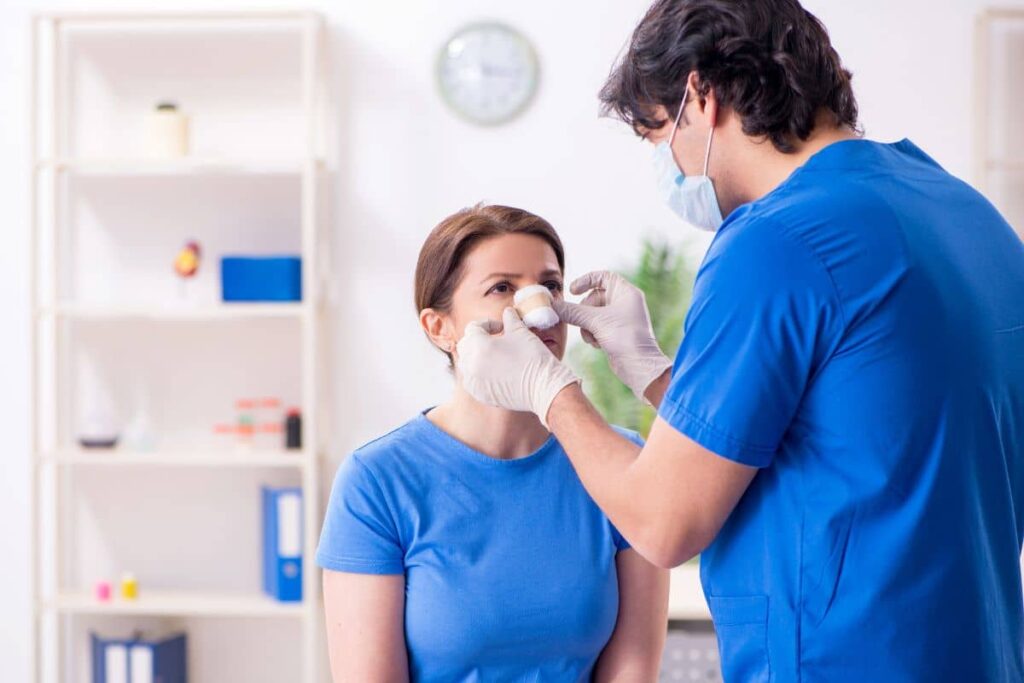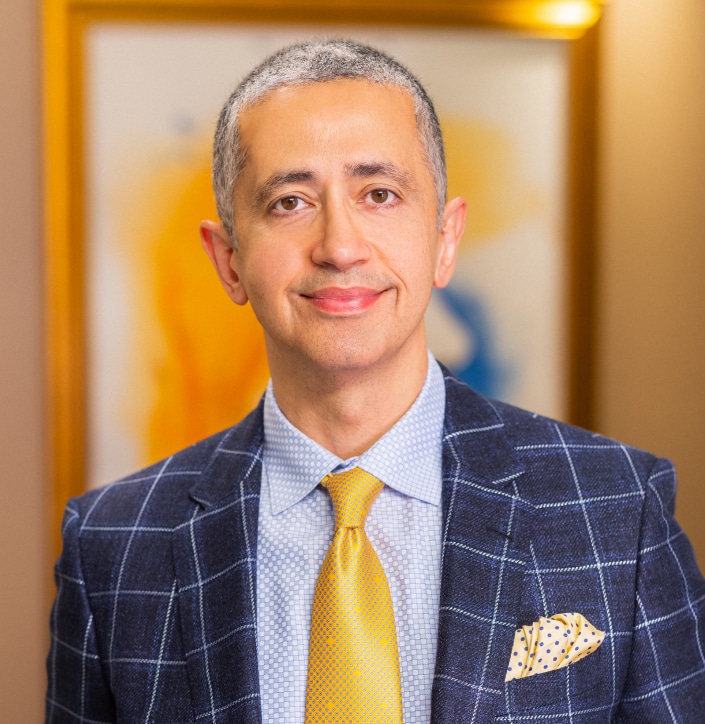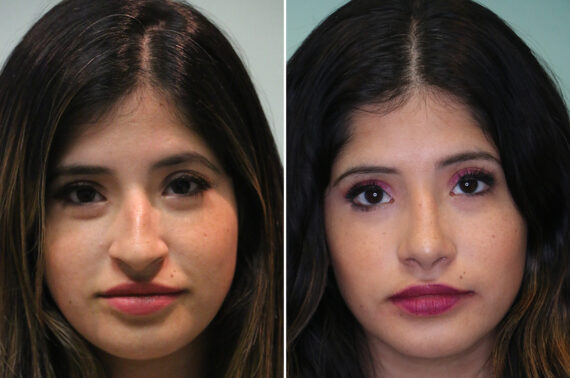Insights from The Naderi Center for Plastic Surgery and Dermatology near Potomac, MD
Traveling abroad for rhinoplasty surgery, especially to countries like Turkey, has become increasingly popular due to the lower upfront costs. But while the savings can be tempting, there are important factors that patients often overlook, from differences in training and safety standards to the lack of ongoing follow-up care once they return home. At The Naderi Center in Chevy Chase, MD, Dr. Naderi observed how problems from procedures overseas affect patients’ health as well as their money. Before deciding on price alone, a person should understand the complete situation.

Is Rhinoplasty in Turkey Worth It? What Patients Need to Consider
- In some countries, like Turkey, the nose job cost can be less expensive. The care people receive after a surgery and the rules that keep patients safe can differ a lot.
- Board-certified U.S. surgeons follow strict training, licensing, and hospital oversight that many international clinics may not match.
- Problems like infection, scarring, or breathing trouble often appear weeks after a nose job. At that time, doctors from another country are not close by to treat them with the attention they deserved.
- Revisions and touch-ups are more easily and affordably handled when your surgeon is local and accessible.
- Choosing a trusted, nearby expert like Dr. Naderi means ongoing care, clearer communication, and peace of mind through every stage of recovery.
The Appeal and the Risk of Rhinoplasty Procedures in Turkey
Rhinoplasty remains one of the most common cosmetic surgeries. Much interest in this procedure caused a rise in patients who go overseas, particularly to Turkey; they travel there to get surgery for much less money than in the United States. While Turkey is home to some outstanding rhinoplasty surgeons, it’s critical to understand that quality can vary significantly from one clinic to the next. “There are definitely some excellent rhinoplasty surgeons in Turkey,” says Dr. Shervin Naderi, board-certified facial plastic surgeon, “but the challenge lies in figuring out who they are — and who they aren’t. That’s not always obvious from what you see online.”
U.S. vs. International Standards
Board Certification and Training
In the United States, board certification is a rigorous process that ensures a surgeon has gone through years of specialty training, passed written and oral board exams, and participates in ongoing education. Internationally, certification standards often differ and may not require the same level of expertise. “In the U.S., we hold surgeons accountable to the highest standards,” Dr. Naderi explains. “That’s how we ensure that the person operating on your face is actually qualified to do so.”
Licensing and Hospital Privileges
Even beyond training, licensing and privileges matter. In the U.S., surgeons must reapply regularly for hospital or surgical center privileges, verifying competence and safety. They must also maintain medical licenses and continuing education. “Hospitals in the U.S. don’t just let anyone walk in and operate,” Dr. Naderi notes. “It’s a tightly controlled system built to protect patients.”
The Challenges of Overseas Rhinoplasty Recovery and Aftercare
One of the biggest challenges with rhinoplasty surgery abroad is what happens after you fly home. Many overseas clinics discharge patients within a week or two, assuming the rest of the healing will be smooth. But the truth is that a nose job recovery is a process that unfolds over months. “We follow our patients closely for weeks and even months after surgery,” says Dr. Naderi. “That’s when some of the most critical healing and complications occur.”
Serious Conditions That Can Arise after a Nose Job
Post-operative infections are just one example. Others include swelling, asymmetry, or poor healing that may require steroid injections or revision care. But there are even more serious complications that demand your surgeon’s immediate involvement. One of the most concerning conditions is skin necrosis, a condition where poor blood supply leads to skin death. This can happen from over-aggressive cartilage removal or too much compression from splints or dressings. “We’ve treated patients with early signs of skin necrosis using hyperbaric oxygen therapy,” Dr. Naderi explains. “But timing is everything. If you wait too long, the tissue loss can become permanent.”

Ensure your surgeon meets the highest standards
Schedule a consultation with Dr. Naderi, a board-certified facial specialist.
Other Complications Requiring In-Person Treatment
An expert surgeon’s presence is important for other possible complications:
- Septal perforation – A hole appears in the nasal septum. This may cause whistling noises, crusts, or problems with breathing. The hole can form during the surgery, or it can develop later as a problem. “A septal perforation must be diagnosed and managed early to prevent long-term problems,” Dr. Naderi notes.
- Alar retraction or collapse – Sometimes, the nostrils can become distorted or overly pulled upward (retracted) if too much cartilage is removed or healing doesn’t go as planned. This can affect both aesthetics and function. “We often see these issues a few weeks or months after surgery,” says Dr. Naderi. “They may require grafting or specialized interventions to correct.”
- Internal or external nasal valve collapse – This can cause serious breathing difficulties and may not be obvious until swelling subsides. If left untreated, it can significantly affect the nasal structure and quality of life. It may require surgical correction.
- Scar tissue overgrowth (fibrosis) – Extra scar tissue forms inside, which makes the nose look uneven or blocks it. Early detection is key. Surgeons may need to perform in-office procedures, steroid injections, or massage therapies to manage this properly.
Limits of Remote Communication
These issues cannot be effectively managed via WhatsApp messages or long-distance video calls — especially when foreign professionals, like Turkish surgeons, are not licensed to prescribe medication or treat patients in the U.S. “We get calls all the time from patients who had surgery abroad and now need help,” Dr. Naderi says. “Their doctor is thousands of miles away and can’t do anything. They’re stuck, scared, and scrambling.”
The Challenge of Revision Surgeries and Accountability
Another reality is that revisions are sometimes necessary. Even the best rhinoplasty can need a small touch-up — and many U.S. surgeons are willing to perform these at no additional cost. That’s not often the case when dealing with overseas clinics. “We try to make our patients happy and offer reasonable revision policies,” Dr. Naderi says. “But when you’ve had surgery abroad, the burden is back on you — financially and physically — to go back or find a new surgeon here.”
The accountability structure in the United States also offers protections not found in many international settings. Surgeons here are monitored by state medical boards, subject to malpractice laws, and reportable if they cause harm. “If something goes wrong in the U.S., there’s a system in place to make things right,” says Dr. Naderi. “That doesn’t always exist overseas.”

Additional Considerations for Medical Tourism
Surgical skill and safety are important. However, patients often overlook other practical factors when they consider cosmetic surgery in a foreign country.
The Convenience of Local Surgeons
Perhaps the most overlooked aspect is accessibility. When your surgeon is nearby, you can get seen quickly, in the same time zone, without needing international flights or translators. “You shouldn’t have to renew your passport just to check on your nose,” Dr. Naderi says with a smile. “Surgery is the easy part. It’s the recovery where you need your surgeon the most.”
Deceptive Social Media Marketing
Social media has also played a misleading role. “Unfortunately, we see heavily edited before-and-after photos that distort the truth,” Dr. Naderi warns. “There’s a lot of deceptive marketing — the before photo is taken with bad lighting and angles, and the after is taken with perfect lighting, makeup, and filters. That’s not medicine. That’s advertising.”
Logistical and Emotional Strain of Plastic Surgery
Finally, it’s important to consider the logistics and stress of medical travel for international patients: language barriers, unfamiliar cities, transportation challenges, and lack of follow-up options. “You’re not just buying a surgery,” says Dr. Naderi. “You’re buying a long-distance, high-risk medical experience that may leave you on your own if things don’t go perfectly.”

Choose Safety Over Shortcuts
Dr. Naderi has seen numerous patients who return from surgery abroad in need of follow-up care or major revision. “I understand that finances matter,” he says. “But sometimes it’s better to wait, save up, and do it right — safely, with someone who’s going to be there for you every step of the way.”
If you’re considering rhinoplasty and want the confidence of working with a highly trained, board-certified facial plastic surgeon, Dr. Shervin Naderi offers exceptional care grounded in surgical precision, safety, and long-term support. He performs only facial procedures, focusing on nose jobs. People know Dr. Naderi for his surgical techniques and his dedication to natural, balanced rhinoplasty results.
His office in Chevy Chase, Maryland, is just outside Washington, D.C. It treats patients who come from the U.S. and from other countries who want nose surgery. The office operates in a medical setting that holds full accreditation and is safe.
Ready to take the next step?
Book a consultation with Dr. Naderi today. Begin a journey with an experienced surgeon who stays with you before, during, and after your surgical procedure.
